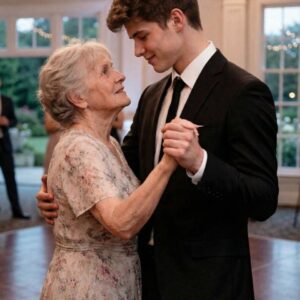When my son announced he was getting married, I was overjoyed. He had found a woman he loved deeply, and she adored him in return. Their bond was undeniable, and I wanted nothing more than to see them start their life together with joy. But as wedding plans unfolded, a quiet storm began brewing in the background.
His bride-to-be was a committed vegan.
Not just casually vegan, but fully immersed in the lifestyle—ethically, environmentally, spiritually. She made it clear early on that the wedding menu would reflect those values: one hundred percent plant-based, with no exceptions. While I respected her passion, I couldn’t help but notice how my side of the family reacted. We were barbecue people—born and raised on smoked ribs, brisket, pulled pork, and all the slow-cooked traditions that had tied generations together. For us, barbecue wasn’t just food. It was connection, history, and comfort.
At first, I bit my tongue. It was her wedding day too, after all, and she deserved to have her vision realized.
But as months passed and relatives quietly grumbled, I realized the deeper issue wasn’t about meat. It was about belonging. My family felt like their traditions, their way of celebrating, had been dismissed. Weddings, in my view, should bring families together—not drive wedges through them.
So I came up with a plan. Without making a scene or undermining the vegan menu, I quietly reached out to a small local caterer who specialized in barbecue.
They agreed to set up a modest food station outside the reception hall, away from the main dining area. No big signs, no flashy setup—just good, honest barbecue prepared with the same love and care that had defined my family’s gatherings for decades.
The wedding day arrived, and everything looked picture-perfect. The venue glowed with soft lights, the ceremony was heartfelt, and the bride looked radiant walking down the aisle. During the reception, servers carried trays of elegantly plated vegan dishes, and the guests genuinely seemed impressed.
The flavors were vibrant, the presentation stunning. Even I had to admit, the food was far better than I expected.
But then came the moment I had quietly anticipated. As the sun dipped lower, the unmistakable aroma of smoked brisket and tangy ribs began drifting through the air. At first, it was subtle—just a faint whiff carried on the evening breeze. But soon, people started noticing.
A few guests wandered outside, curious. Then more followed. Before long, laughter and chatter filled the air as a crowd gathered around the barbecue station. Plates piled high, cups clinked, and smiles spread across faces that had been quietly longing for a taste of home.
I caught sight of my daughter-in-law across the room. At first, her eyes narrowed, her lips pressed tight.
She looked shocked, maybe even betrayed. My heart sank, and for a moment I wondered if I had made a terrible mistake. But then something shifted. She saw her new family, together, happy, their spirits lifted by a meal that carried meaning for them. Slowly, her expression softened. She didn’t rush over in anger. Instead, she let it be, choosing to watch from a distance as both menus—the vegan feast inside and the barbecue outside—were enjoyed side by side.
The night went on, and the two worlds blended more seamlessly than I had imagined
. Some of the vegan guests, curious and open-minded, ventured outside for a taste of ribs. And some of my die-hard barbecue relatives tried a few vegan dishes and admitted, somewhat sheepishly, that they were delicious. The two menus, instead of clashing, became a bridge between groups of people who otherwise had little in common.
When the music quieted and the night wound down, my son found me.
He leaned close, smirk tugging at the corner of his mouth, and whispered, “Mom, you nailed it. This was the perfect compromise. Everyone got what they needed.” Relief washed over me in that instant. What I had feared might cause conflict had instead brought balance.
That evening taught me something I’ll never forget: weddings aren’t just about two people declaring their love. They’re about merging lives, families, and traditions into a shared future. Compromise isn’t about winning or losing—it’s about weaving together different threads into a stronger fabric.
As I watched my son and his bride leave hand in hand, surrounded by the people who loved them most, I realized that little secret barbecue wasn’t an act of rebellion. It was an act of love—a quiet way of saying that everyone’s traditions mattered, that no one was left behind. And in its smoky, savory way, it saved the day.




